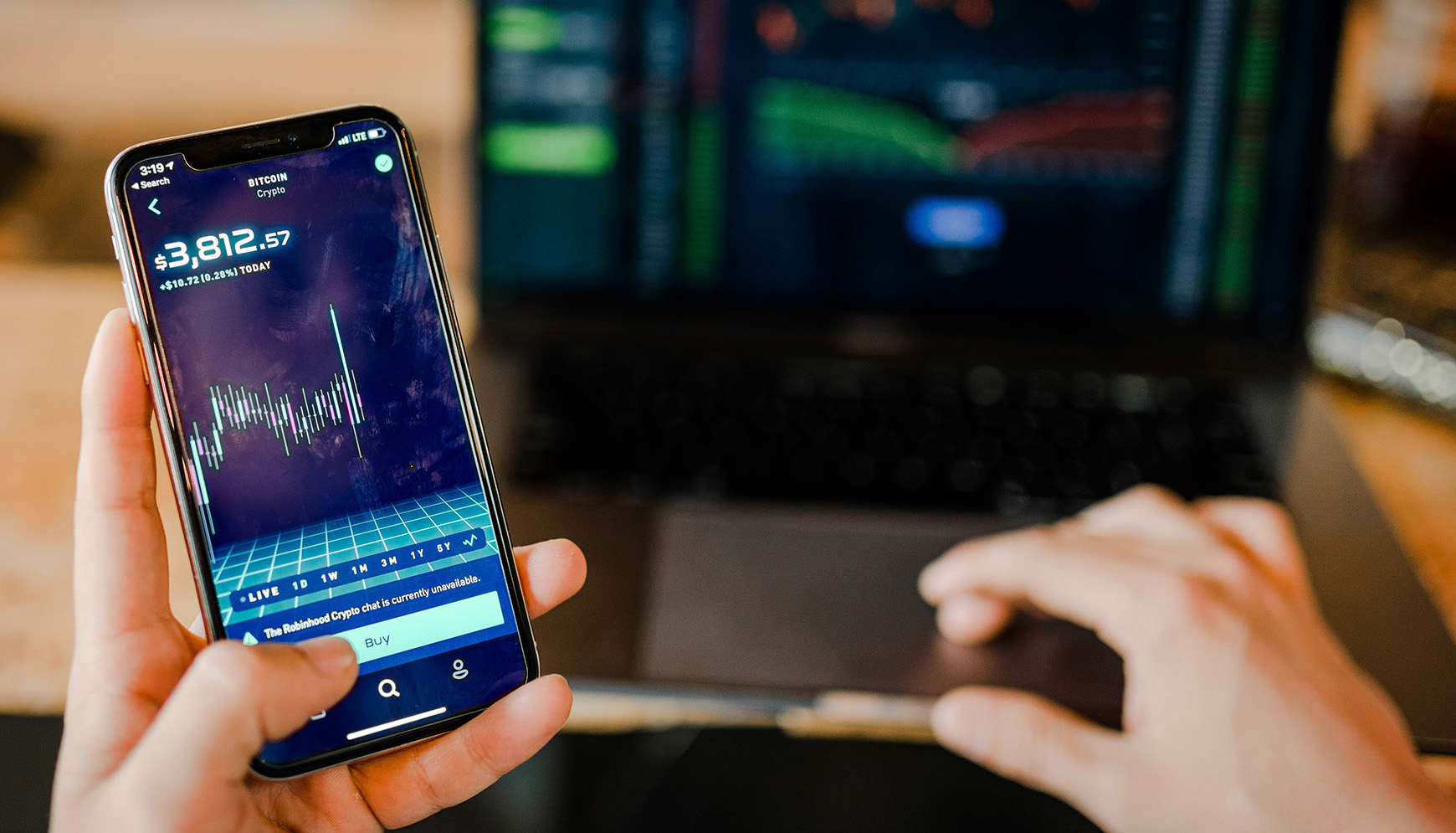At 8pm on Saturday, 19 July 2025, every coin on Luno’s platform plummeted between 15% and 25% in perfect synchronisation. Bitcoin, Ethereum, even the supposedly stable USDC – all crashed simultaneously before mysteriously recovering just as quickly.
For those frantic 30 minutes, it looked like the crypto apocalypse had finally arrived. Except it hadn’t. This was uniquely a Luno problem, confined to South African rand trading pairs, while the rest of the global crypto market carried on obliviously.
Read more: Crypto Corner: Altcoin party shut down, but innovation still pumping
When Daily Maverick asked Luno for comment, country manager Christo de Wit didn’t just respond – he called back to provide additional clarity. His explanation is both simpler and more troubling than anyone anticipated.
“The price drop was the result of significant and concentrated sell-side activity,” De Wit explained during our conversation, choosing his words carefully. Translation: one whale plunged into what was essentially a shallow pond and created tsunamis.
The anatomy of a Saturday night disaster
The beauty and curse of cryptocurrency exchanges is their democratic nature. Unlike traditional stock markets with their market makers and safeguards, crypto platforms operate as pure order books where price discovery happens in real time between buyers and sellers. It’s capitalism in its rawest form.
After the Boks massacred Georgia in Mbombela and South Africans were gathering to watch the U20s win a world championship, someone decided to execute what De Wit describes as a “very high-volume transaction”. Not irregular per se, but “not necessarily within an expected range”.
The seller was, by all accounts, inexperienced. “They purely needed to make the transaction…Thought, why not do it now?” De Wit explained with the weary tone of someone who’d seen this movie before.
Read more: The JSE 100k milestone that broke our market table
Globally, crypto trading volumes drop over weekends as institutional players step away and retail traders head to braais and family dinners. Less liquidity means any large order has an outsized impact – like dropping a boulder in a bathtub instead of a swimming pool.
The large sell order “ate into that liquidity” on one trading pair, then created a “ripple effect into the other markets” as the platform’s interconnected systems responded exactly as designed. Every coin crashed in unison because that’s how Luno’s open order book system works – it matches the demand and supply it sees, not what’s happening on Binance or Coinbase.
When safeguards become complications
Here’s where the story gets more complex. De Wit insists Luno’s “circuit breakers” kicked in as designed, “triggered multiple times, slowing down customers being able to place orders” during the volatility. These are meant to be the safety net, the financial equivalent of emergency brakes.
But there’s a catch that emerges from detailed user complaints and email correspondence provided to Daily Maverick: these circuit breakers apparently don’t apply to instant orders – the one-click buy/sell option that most casual users prefer. It’s like having airbags that only work if you’re wearing a seatbelt, but not telling customers about the seatbelt requirement.
The engineering team immediately jumped on calls when alerts began firing, checking for “any kind of malicious activity”. They found none.
“There’s absolutely no manipulation or any maleficence, nothing nefarious,” De Wit said. Just an inexperienced trader who picked the worst possible moment to learn an expensive lesson about market dynamics.
The responsibility game
This is where De Wit’s explanation shifts from sympathetic to stern. Crypto trading, he reminds, requires “active participation”. Users who set stop-loss orders – automated sells triggered when prices drop – bear “a level of responsibility to also check your orders matched to what’s happening globally”.
It’s the financial markets’ equivalent of “buyer beware”, except the buyers thought they were buying insurance and instead discovered they’d signed up for a game of Russian roulette.
Read more: Crypto Corner: Reading currents behind bitcoin wave
The platform “operated as the exchange should operate because it is an open order book exchange,” De Wit maintains. “Everything was backed up by our terms of use” and the inherent “risks in placing those orders”.
Legally, he’s right. Morally, it’s murkier. When your platform’s design means one trader’s mistake can trigger system-wide panic that costs other users real money, questions arise about whether operating as designed is good enough.
The bigger picture
What happened on Luno that Saturday night wasn’t a hack, a scam or a system failure. It was something potentially more concerning: proof of how fragile South Africa’s crypto ecosystem really is.
The incident revealed that our local market lacks the depth and sophistication to absorb even moderately large trades without dramatic price swings. When De Wit talks about liquidity “rebuilding quite soon after as more players became involved,” he’s describing a market so thin that recovery depends on individual traders manually stepping in to restore sanity.
This story began on Monday when a detailed complaint landed in Daily Maverick’s inbox. The informant, who lost money during the Saturday night crash, provided screenshots, email correspondence with Luno and a minute-by-minute account of how their stop-loss orders – set as prudent risk management – became the very mechanism that amplified their losses.
Read more: Bitcoin pips Amazon to become world’s fifth-largest asset in record week
Questions that linger
Three weeks later, several questions remain unanswered. If Luno’s systems worked as designed, is the design fit for purpose in a market this volatile? Should retail investors be better warned about the risks of automated trading in illiquid markets?
De Wit maintains that “everything happened as it should”, but for the traders who watched their portfolios evaporate and recover within 30 minutes, the definition of “should” might need some recalibration.
The crypto revolution promised to democratise finance, removing gatekeepers and intermediaries. But in a truly open market, sometimes the gatekeepers serve a purpose – and their absence can be expensive for everyone involved. DM




 (Photo: Unsplash / Austin Distel)
(Photo: Unsplash / Austin Distel)